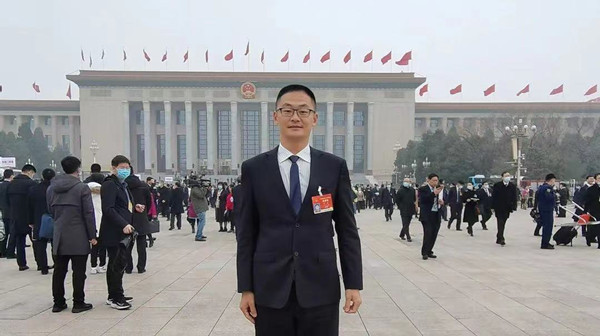Digitalization and intelligentization are paths to green and low-carbon development for energy enterprises, according to a deputy to the 13th National People's Congress (NPC).
This year's government work report, delivered at the opening meeting of the fifth session of the 13th NPC, sets goals of implementing work on peaking carbon dioxide emissions and carbon neutrality and lists several missions for promoting energy revolution and enhancing construction of large-scale wind and solar power bases and supporting facilities.
Ding Ming, an NPC deputy who works for China National Offshore Oil Corporation (CNOOC)'s Huizhou project, made suggestions on natural gas-based power generation at this year's annual sessions of China's top legislative and political advisory bodies.
According to Ding, CNOOC has resource and first-mover advantages in natural gas-based power generation and has contributed to the country's clean energy supply. However, there are still bottleneck problems to be broken through.
Ding suggested that relevant government departments should release policies to support the natural gas-based power generation industry and accelerate liquefied natural gas (LNG) refueling of heavy trucks.
He pointed out that the position of natural gas-based power generation in the new-type power system should be cleared to form guiding prices in the industry, and at the same time oil and gas enterprises' carbon emissions from natural gas-based power generation should be improved.

Ding Ming, an NPC deputy who works for China National Offshore Oil Corporation (CNOOC)'s Huizhou project, makes suggestions on energy revolution and natural gas-based power generation at this year's annual sessions of China's top legislative and political advisory bodies. [Photo/sasac.gov.cn]
Green transformation is another focus of Ding's. In his view, improving green and low-carbon development through digitalization and intelligentization is the main way the energy industry could realize an energy revolution.
He also gave suggestions on boosting manufacturing software innovation and pointed out that China should make preferential policies on talent introduction, high-tech identification and taxation.
(Executive editor: Niu Yilin)